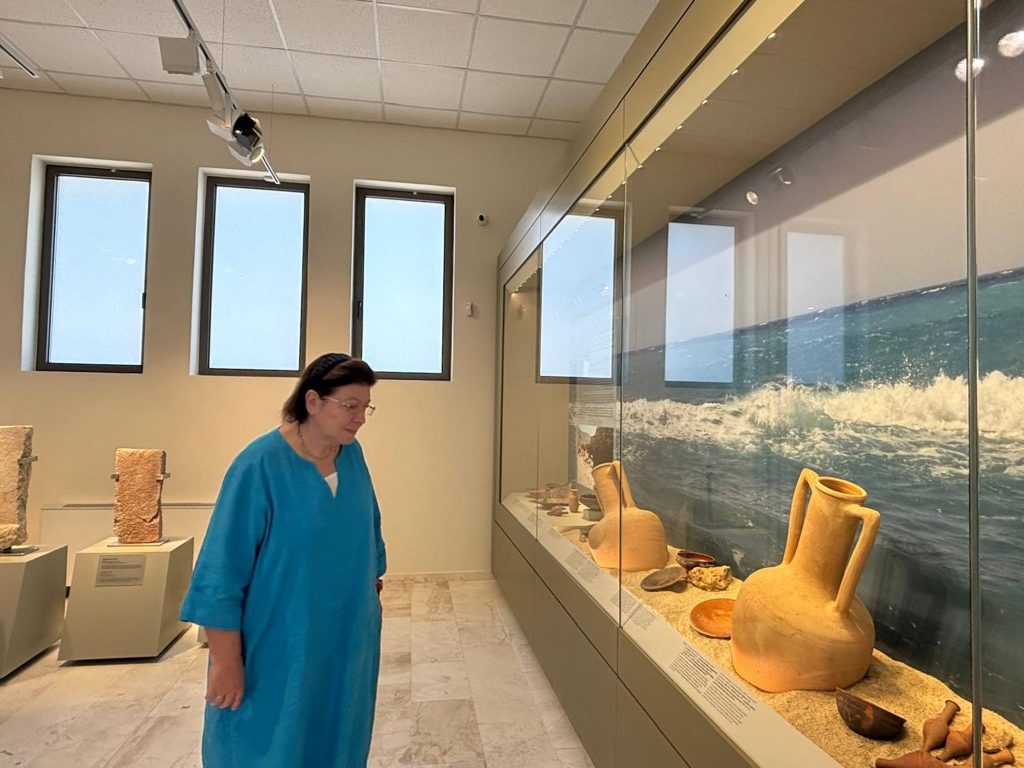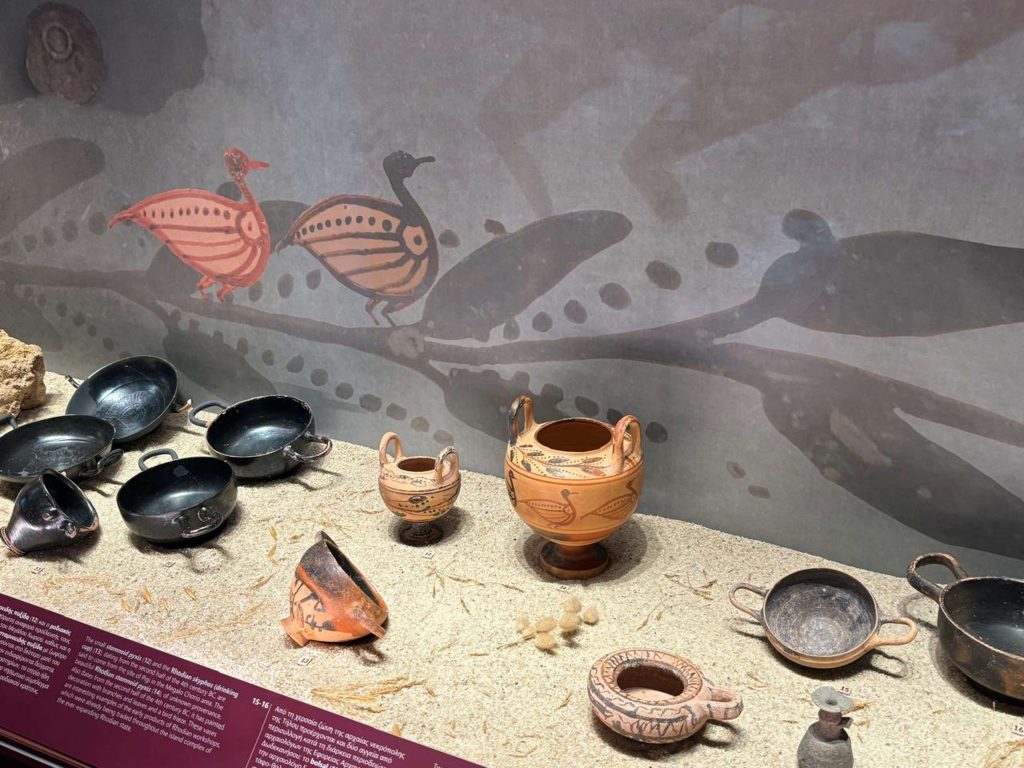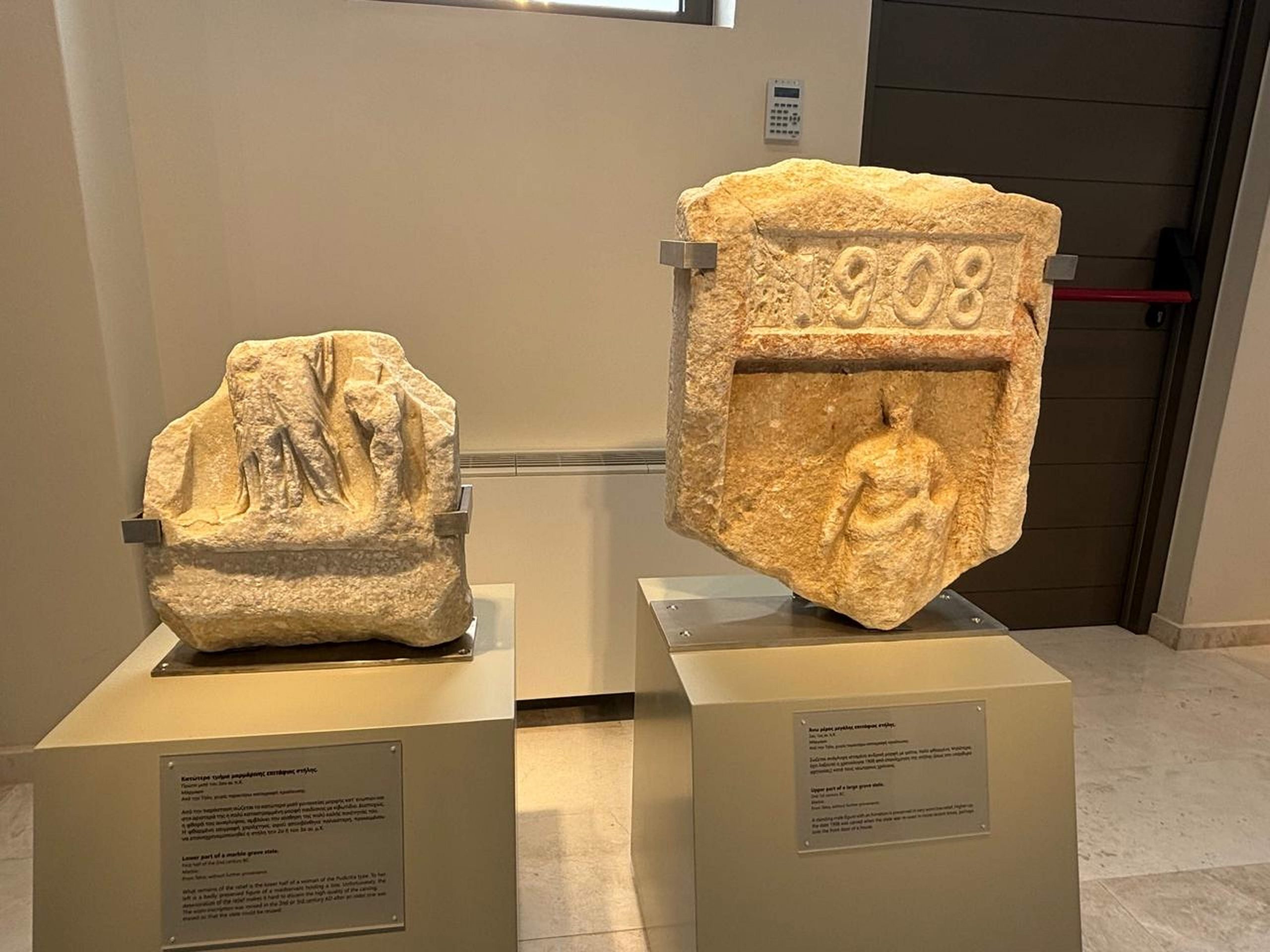Following closely on the heels of the rededication of thoroughly renovated museums on Samothrace and Delos, it was the turn of the small and off-the-beaten-path island of Tilos this past week to inaugurate a new museum to house exhibits showcasing its 3,600-year history.
A new purpose-built museum erected for 2.6 million euros on land donated by the Orthodox Church was inaugurated this week in the presence of the leadership of Greece’s culture ministry, local office-holders, and most of the residents of the Dodecanese isle. Tilos lies mid-way between the better-known and larger Kos and Rhodes.
Exhibits detail the history of the isle from the late Bronze Age through to a period of greater significance in Classical and Hellenistic times, the Roman era, late antiquity and the arrival of Christianity, the Byzantine Empire, the centuries of control by the Knights of St. John, and finally Ottoman rule, under which the island enjoyed a privileged status.
From the end of July, the now thoroughly renovated, expanded, and upgraded Delos Archaeological Museum is once again ready to receive visitors by the boatload from nearby Mykonos.
According to ancient Greek myth, Delos was the birthplace of the Olympian gods Apollo and his twin sister Artemis and was home to the sanctuary of the former in antiquity. The island served as a major commercial and trading port in Classical antiquity, attracting merchants, pilgrims, and travelers from around the Mediterranean world at its peak.





